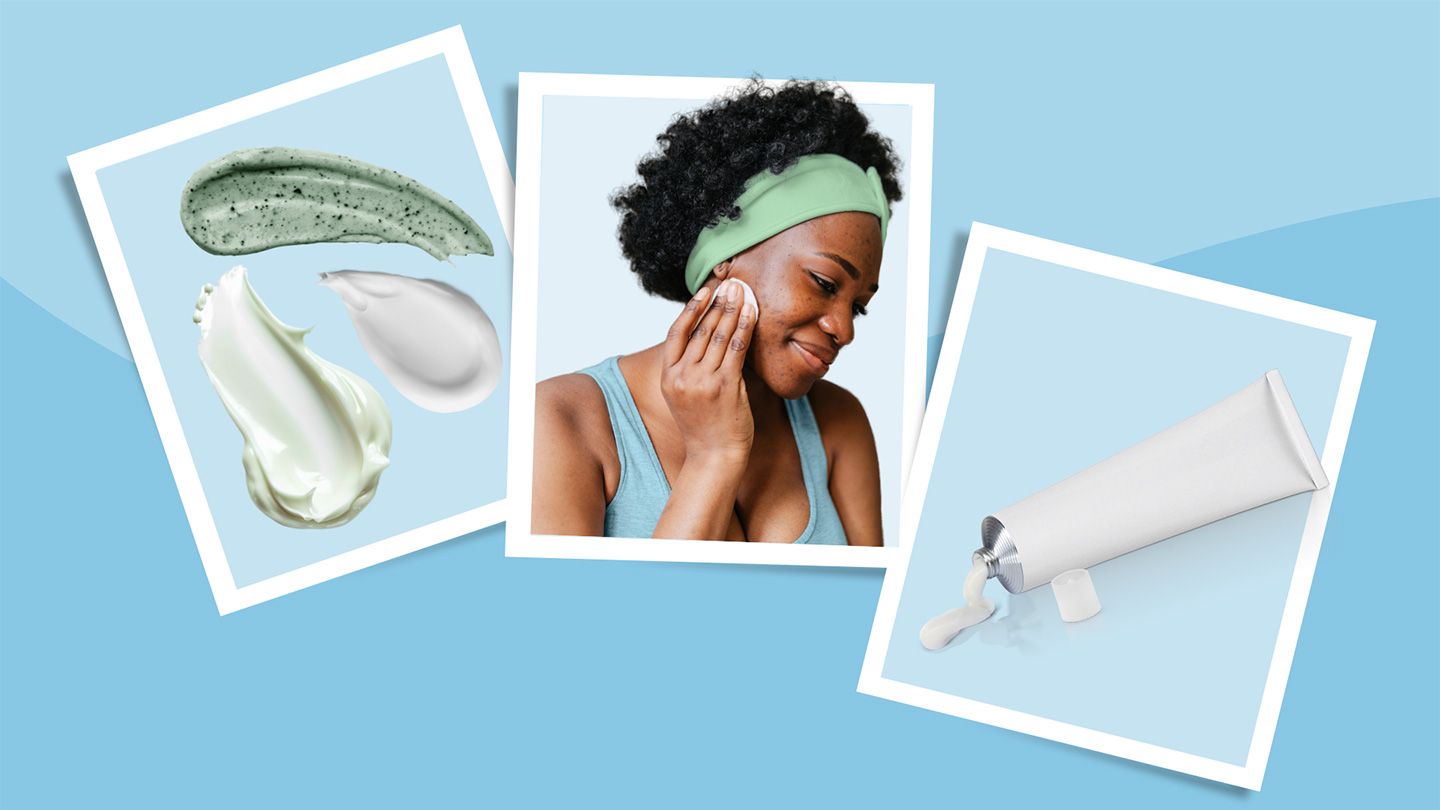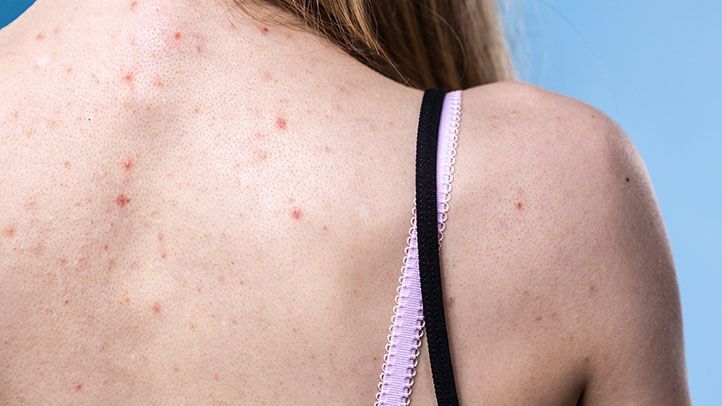Examining the Link Between Ashwagandha and Acne
Ashwagandha, scientifically known as Withania somnifera, is an popular Ayurvedic herb used to manage stress, increase energy levels, and boost concentration. However, some people report breaking out in acne after taking ashwagandha supplements. What's the real deal?
This article investigates:
- Ashwagandha benefits and mechanisms of action
- Potential reasons why ashwagandha may trigger acne
- Lifestyle factors and skincare habits to address acne
- Ways to use ashwagandha safely to avoid acne
Ashwagandha as an Adaptogen
Ashwagandha contains a variety of bioactive compounds like withanolides, alkaloids, choline, fatty acids, amino acids, and a variety of sugars. It works as an adaptogen - meaning it helps the body handle physical and emotional stress more efficiently.
Benefits of supplementing with ashwagandha include:
- Lower cortisol and perceived stress levels
- Increased energy, endurance and strength
- Enhanced concentration, memory and reaction time
- Reduced anxiety and depression
- Stabilized blood sugar levels
- Anti-inflammatory, anti-cancer and antioxidant activity
Why Might Ashwagandha Trigger Acne?
Despite its numerous health boons, some users complain of developing acne and zits after starting ashwagandha. Why does this happen?
Potential theories include:
- Hormonal imbalance - Ashwagandha can enhance thyroid hormone production. Excess thyroid hormones can overstimulate the sebaceous oil glands, promoting breakouts.
- Interaction with testosterone - Compounds in ashwagandha may increase testosterone levels. Higher testosterone increases sebum production, often clogging pores.
- Follicle irritation - Components like alkaloids and withanolides may irritate hair follicles, leading to redness and whiteheads.
- Increased cortisol - Although ashwagandha is known to lower cortisol, short-term increases before levels stabilize could instigate acne.
- Toxin elimination - Ashwagandha boosts lymphatic drainage. This quickly releases toxins into bloodstream which manifests as skin eruptions.
Key Factors that Can Worsen Acne
While ashwagandha may directly prompt breakouts due to the mechanisms above, other aspects of diet, lifestyle and skincare may exacerbate the problem in susceptible individuals. Consider if any of these apply to your situation:
- Junk food diet high in sugars, oils and processes carbs
- High dairy intake like milk, cheese, ice cream
- Hormonal changes like monthly cycles or contraceptives
- High-stress situations such as exams or job issues
- Use of pore-clogging cosmetics, lotions or sunscreens
- Environmental pollutant exposure
- Not drinking enough water, inadequate hydration
- Poor sleep quality and staying up late
- Smoking cigarettes or tobacco use
Managing Acne Caused By Ashwagandha
Before discontinuing your ashwagandha, implement both internal and external anti-acne solutions to control symptoms.
Lifestyle and Dietary Modifications
Target acne from inside-out by:
- Consuming a balanced, low-glycemic diet
- Staying hydrated by drinking plenty purified water
- Getting 7-9 hours of quality sleep per night
- Quitting smoking and limiting alcohol intake
- Reducing stress via yoga, meditation, journaling
- Exercising regularly to improve circulation and detox
- Taking targeted skin-nourishing and anti-inflammatory supplements like zinc, omega-3s, turmeric
Topical Skincare Ingredients
Use blemish-busting skincare containing ingredients like:
- Benzoyl peroxide - antimicrobial against p.acnes bacteria
- Retinoids - vitamin A derivatives to accelerate cell turnover
- Salicylic acid - clears sebum, debris to prevent clogged pores
- Sulfur - absorbs excess facial oil
- Tea tree oil - natural antimicrobial and anti-inflammatory
- Niacinamide - regulates sebum secretion
- Azelaic acid - keratolytic to unclog hair follicles and refine skin texture
Apply spot treatments only on existing pimples and acne-prone zones instead of all over the face to avoid dryness or irritation.
Light Therapy Devices
Handheld LED devices delivering blue and red light can eliminate acne bacteria, decrease inflammation and promote faster healing without harsh chemicals. Use for 10-15 minutes daily by gently gliding over acne-prone areas.
When to Stop Ashwagandha
Despite your best anti-acne efforts, if breakouts continue to worsen:
- Discontinue ashwagandha for 1-2 weeks to see if symptoms improve
- If skin clears, you can try reintroducing ashwagandha in smaller doses with close monitoring
- Maintain acne-busting diet, lifestyle and skincare routines
- If acne returns, ashawandha may not suit your body chemistry long-term
Discuss with your Ayurvedic practitioner about potential herb substitutions like shilajit, brahmi or triphala that provide similar benefits without acne risks.
The Bottom Line
Although ashwagandha offers impressive health benefits, it may also contribute to acne breakouts in some cases. Strategies like probiotics, zinc supplements and salicylic acid cleansers can help combat annoying zits. Modify lifestyle factors and control flare-ups with targeted skincare so you can continue enjoying ashwagandha safely.
FAQs
Why does ashwagandha cause me to break out?
Potential reasons include hormone fluctuations, irritation from compounds, increased cortisol initially, or detoxification. Lifestyle, genes and skincare habits also play a role.
Should I stop taking ashwagandha for acne?
Try anti-acne solutions first, but discontinue ashwagandha for 1-2 weeks if symptoms worsen. Reintroduce cautiously in lower doses to see if skin improves.
How can I prevent acne from ashwagandha?
Follow a healthy diet, control stress, exercise, hydrate skin, avoid acne triggers, and use targeted skincare ingredients like salicylic acid and niacinamide.
Does ashwagandha help with acne?
For some people ashwagandha can help control acne by lowering cortisol levels and regulating hormones. But in other cases it may aggravate breakouts.
Can I take ashwagandha supplements long term?
With proper anti-acne protocols in place, most people can take ashwagandha supplements safely long term. But some may need to switch to herbs like shilajit or brahmi instead.
Disclaimer: This article is for informational purposes only and does not constitute medical advice. Always consult with a healthcare professional before starting any new treatment regimen.
Related Coverage
Learn what causes shoulder and back acne, plus find medicated treatments, home remedies and tips to get rid of bacne and prevent future breakouts....
VMware publishes annual report on high-risk vulnerabilities, highlighting increased threats from ransomware, supply chain attacks, and cloud misconfigurations in 2023....
Bacne or back acne often responds well to over-the-counter washes, but severe cases may need prescription medications, professional extractions, lasers, peels, and microneedling to clear skin and minimize scarring....
Proactiv face wash products help both teenagers and adults prevent acne breakouts. Lifestyle tweaks like avoiding face touching and eating low glycemic foods also improve skin....
Inner thigh acne can be cleared up with the right skincare ingredients like salicylic acid and benzoyl peroxide. Learn expert tips to prevent thigh pimples and bumps....
Butt acne can cause embarrassing bumps, cysts, and scars on your rear. Learn what causes pimples on the buttocks and how to treat acne on your behind....
Achieve clear, healthy skin with the Proactiv Quick Start Guide. Learn how this simple 3-step system targets acne, improves texture, and balances your skin for a radiant complexion....
Spironolactone acne treatment poses pregnancy risks if taken while trying to conceive. But stopping the drug 1+ months before conception allows it to clear your system....
Butt acne is a common nuisance. Learn what causes pimples and bumps on your backside and how to clear them up safely and effectively....
Learn whether it is better to take medicinal mushroom supplements on an empty stomach or with food. Discover how timing and dosage impact benefits and absorption....






